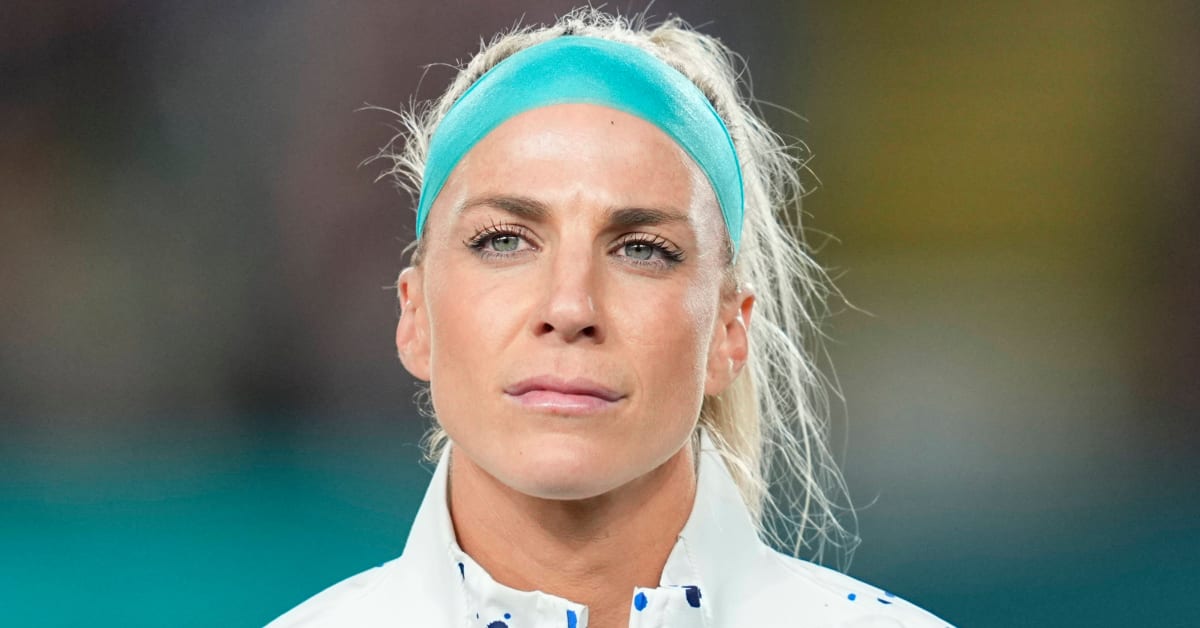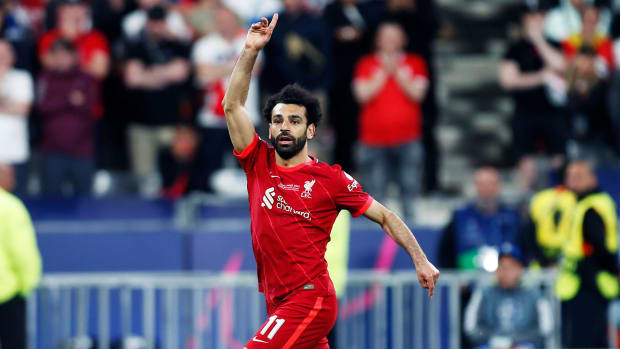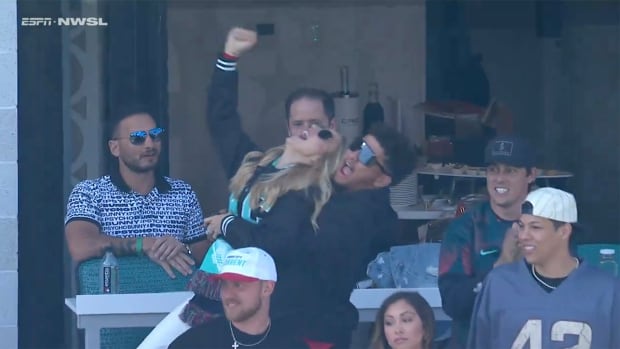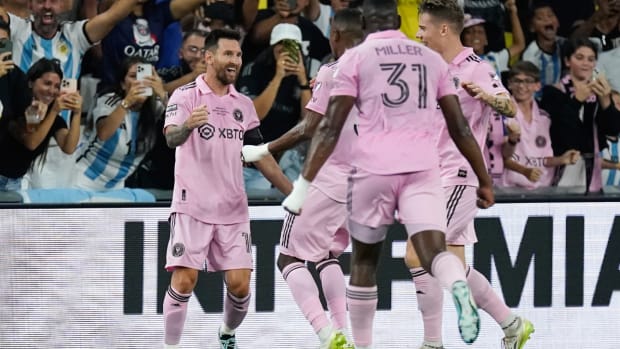
‘It’s Not Because Mama Can’t Play’: USWNT Great Julie Ertz Is Retiring on Her Own Terms
“I feel like I’ve been so blessed to have the career that I’ve had … but then there is just some part in your heart that you just know and I think that is closure enough for me. And I think that is why I am just so grateful to have this last game to close this chapter and say bye,” said Ertz in a press conference Wednesday.
The 31-year-old’s last major tournament outing with the U.S. ended in disappointment, as the team was booted early in the knockout stage of this summer’s World Cup. Ertz started in all four of the USWNT’s games Down Under, despite working her way back into the squad just a year after giving birth to her son, Madden. “I feel like this year I aged in dog years,” Ertz said with a laugh.

Ertz returned to the USWNT roster earlier this year after being away for nearly two years because of injuries and the birth of her son, Madden.
Dustin Safranek/USA TODAY Sports
“I think for me, obviously coming back and having the year that I’ve had and being able to just play was an absolute joy for me,” she added. “Any time you can help this team and make an impact, that is what you want to do.”
Reclaiming her place on the back line, as she did in 2015, Ertz commanded the center back position in a nearly mistake-free World Cup outing. It is a rarity in soccer for a player to be able to hang up their boots as Ertz is, still in elite form, with her last performance a vintage, tough-as-nails final act.
“I do feel like I can step away and be like it’s not because Mama can’t play; Mama can play,” said Ertz.
Although many fans’ last image of Ertz will be her lining up next to Naomi Girma in the World Cup as a center back, that actually isn't the position she is best known for. One of the most enduring facets of Ertz’s legacy will be how she made the defensive midfield her own, so much so that she became nearly irreplaceable at the No. 6 role. Gritty and physical, Ertz forced attackers off the ball, rarely hesitating to put her body on the line. She was an undeniable threat on both sides of the ball while possessing the intangible, never-quit quality that her generation of U.S. players are often tagged with. Few players can claim elite status at multiple positions, and even fewer are deemed utterly indispensable in the way Ertz is.
Off the pitch, Ertz is an essential part of the golden generation of women’s soccer in America, helping to cement the U.S. as the world footballing power with back-to-back World Cups while also moving the game forward domestically. Ertz entered the NWSL in 2014, drafted in the first round by the Red Stars, just two years after the league’s founding. In its infancy, there were still plenty of questions surrounding the NWSL’s future and sustainability. The league was a far cry from what it is today, with the collective bargaining agreement, increased resources and investment elevating the NWSL over the past decade.
“Being a part of the NWSL around the time when we first started to now, the growth is just—what players sacrificed in so many ways so that the next generation could have a domestic league, is one of the coolest parts about my career,” said Ertz. “The first five years, any player that played [in the NWSL] made massive sacrifices to hope that this league was going to be something that could be sustainable and allow young players to succeed and dream.”

“I do feel like I can step away and be like it’s not because Mama can’t play; Mama can play,” said Ertz.
Ira L. Black/IMAGO
In that same vein, the USWNT is often seen as an elaborate and expanding relay race, with one generation passing the baton to the next. Every era of the team is tasked with leaving the USWNT in a better place than when it entered the fold. Ertz, along with the likes of Kelley O’Hara, Carli Lloyd, Megan Rapinoe and Alex Morgan, established a culture of winning, backed by a palpable audacious and dogged ethos that players still cite today as the backbone of the USWNT. Also part of the generation that fought for pay equality, Ertz, along with players like Crystal Dunn and Becky Sauerbrunn (among many others), has forever altered the fabric of the USWNT for future players.
Having imparted “the DNA that is the base foundation of this team” to the next cycle of players, Ertz is ready to pass the proverbial baton to a group she says she has a lot of faith in. With her priorities now shifted to spending quality time with her young son, Ertz, like nearly every retiring USWNT great before her, looks to the next generation.
“If you ever wear the crest, you’re just a part of the family,” said Ertz. “You grow up here.”




